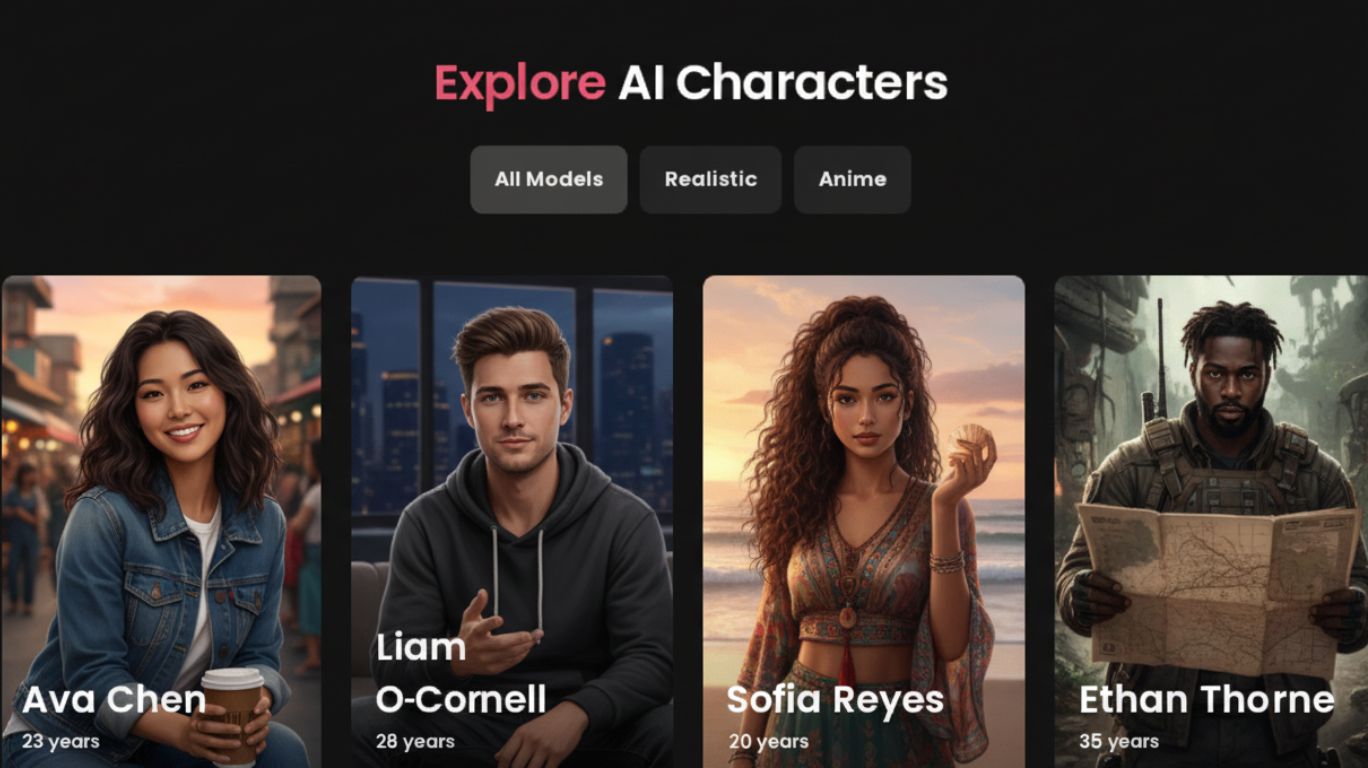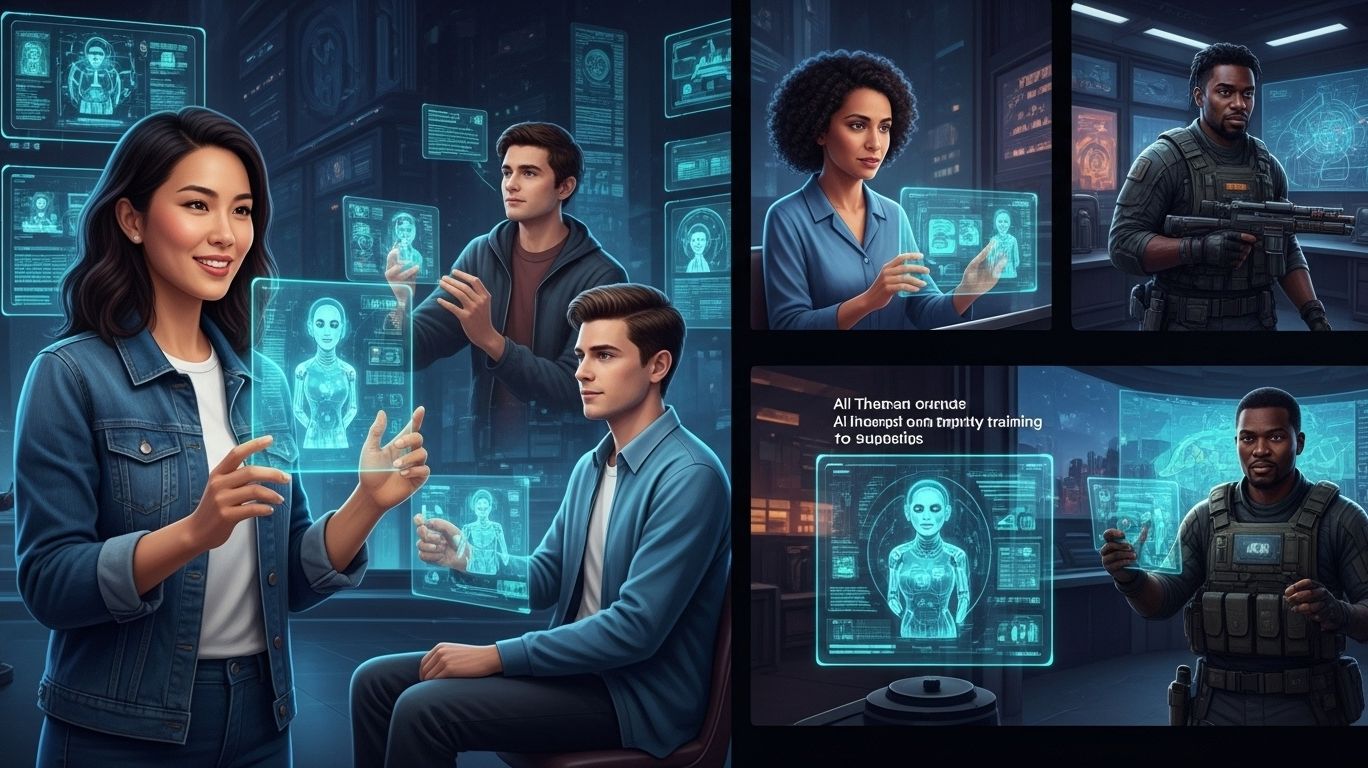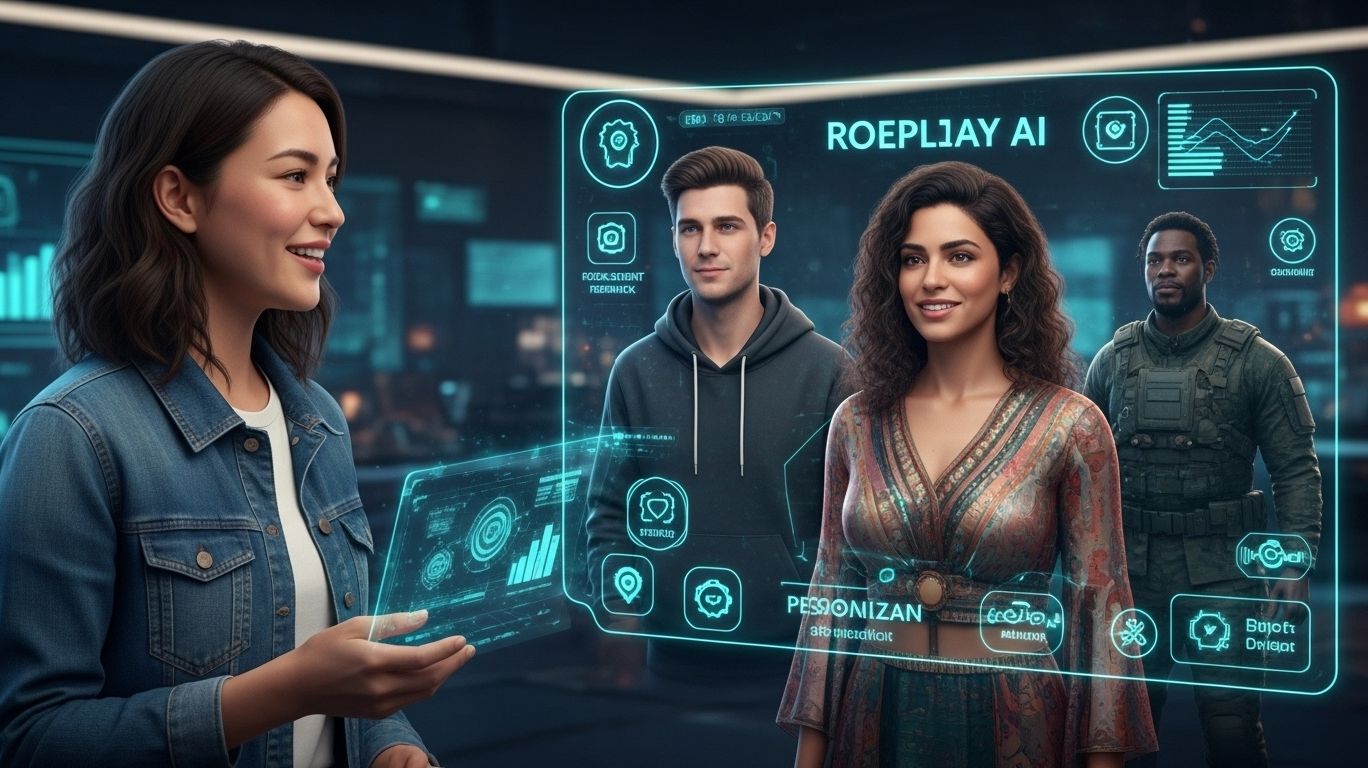
Artificial intelligence (AI) has taken role-playing to a whole new level. What used to be limited to games, acting classes, or professional training scenarios is now accessible to anyone with an internet connection. Roleplay AI has quickly become a powerful learning, practicing, and entertainment tool. Whether you want to sharpen your communication skills, prepare for a challenging work conversation, or just step into an imaginative story, AI can be the perfect partner.
But how does it work, and why are so many people turning to AI roleplay tools? In this guide, we’ll break down everything you need to know about roleplay AI, including its features — from what it is, how it’s used, and the benefits and considerations you should know before stepping in.
At its core, AI roleplay is an interaction between a person and an artificial intelligence system, designed to simulate real-world scenarios. Unlike static chatbots, roleplay AI is powered by generative models that respond dynamically to user input, making the conversation natural and human-like.
These simulations can be simple — like practicing small talk — or complex, such as rehearsing a negotiation with a difficult client. Because AI doesn’t judge or get impatient, it provides a safe space for experimentation and learning.

One of the biggest reasons roleplay AI is gaining traction is its versatility. It’s not tied to just one field or purpose. Here are some of the most common applications:
Roleplay AI can act as a low-pressure practice partner or friend for those who struggle with confidence in conversations. You can rehearse active listening, inclusive language, conflict resolution, or even dating conversations in a safe environment before applying them in real life.
After practicing conversations, users can receive a review of their performance to help identify areas for improvement.
This is the most widespread use case. From language learners practicing with an AI “tutor” to medical students rehearsing patient interactions, roleplay AI provides a controlled, risk-free environment. Many platforms offer an automated review of user interactions, providing feedback to help learners improve. Sales teams, for instance, can simulate objection handling or practice delivering product demos with AI characters, without worrying about losing real deals.
Companies are using AI roleplays to train their customer success and support teams. By simulating difficult clients or high-stakes conversations, employees can practice empathy, problem-solving, and de-escalation techniques before going live with actual customers.
Not all roleplay AI has to be serious. Many people use it just for fun. Writers and gamers, for example, use AI to generate storylines, build world-building, or roleplay characters for creative projects like Dungeons & Dragons or online RPGs. It’s also fun to stave off boredom by jumping into imaginative scenarios.
Not all AI roleplays look the same. Depending on your goals, you might lean toward one format over another:
These include VR and AR roleplays, where AI characters interact with you in a virtual or augmented environment. Imagine practicing a speech in front of a simulated audience or studying a digital world with AI-controlled characters. While still in its early stages, this field is growing rapidly.
The most accessible form, text-based roleplays, simulate specific scenarios through chat. For example, you could run through a mock job interview, practice sales calls, or rehearse customer support conversations all through text interaction.
In gaming, AI is increasingly used to control non-player characters (NPCs), creating more dynamic, lifelike worlds. Whether in multiplayer RPGs or solo adventures, AI roleplay makes games more immersive and engaging.
AI characters are the heart of any roleplay AI experience. These digital personas are designed to interact with users in a natural, friendly, and responsive way. Thanks to advances in AI, these characters can now hold meaningful conversations, adapt to different scenarios, and even simulate the role of a friend or play partner.
Whether practicing a tough conversation, learning a new language, or looking for fun, AI characters can provide a supportive and interactive environment. They learn from each exchange, becoming better at responding to your needs and preferences. This makes every role-play session unique, helping you build confidence and improve your communication skills. With AI characters, users can experience a wide range of scenarios—from professional to personal—making role-play AI a versatile tool for growth and entertainment.

The popularity of AI roleplays isn’t just hype. Here are the main reasons people are enjoying it, particularly in today’s fast-paced day and age :
Looking ahead, the future of roleplay AI is full of exciting possibilities. As machine learning, natural language processing, and computer vision advance, we can expect AI characters to become even more sophisticated and lifelike. These improvements will enable roleplay AI to create more immersive scenarios that adapt seamlessly to each user’s actions and preferences.
Roleplay AI is more than a trend — it’s a transformative tool for learning, growth, and entertainment. The possibilities are nearly endless, from training sales teams to helping individuals practice social interactions or fueling creative projects.
👉 Ready to try roleplay AI? Platforms such as girlfriend.ai and other roleplay tools can help you learn conversations in a safe and engaging way. Newgirlfriend.ai offers many AI companions to choose from as well as free and premium versions of the site.
